Who is dying of COVID amid omicron surge and widespread vaccine availability?
Recent CDC data shows unvaccinated people are 20 times more likely to die.
By
Mary Kekatos
February 21, 2022, 4:05 AM ET
• 13 min read
Who is dying of COVID-19?As of Wednesday, the U.S. is reporting 2,200 new COVID daily deaths on average.Courtesy of Jino Cabrera Carnwath
When the recent COVID-19 wave fueled by the
omicron variant hit the U.S., no one expected it would lead to the number of deaths it did.
As of Wednesday, the nation is reporting 2,200 new
COVID daily deaths on average. While this is lower than the 3,400-peak seen last winter, it's still three times higher than the number of average fatalities recorded two months ago.
MORE: COVID hospitalizations and deaths surge in Los Angeles County
Additionally, last winter, vaccines had only just started to roll out, children were not yet eligible and the conversation surrounding boosters was far off.
With around 60% of Americans fully vaccinated during the most recent wave, daily deaths from omicron are still relatively high, which begs the question: Who is dying of COVID-19 when there is such strong vaccination coverage?
Infectious disease doctors say it is still mainly unvaccinated people, most of whom are in their 30s and 40s with no underlying health issues, who are dying.
</div><div data-xf-p="1" style=&quot;display:inline&quot;class=&quot;GoogleActiveViewElement&quot;data-google-av-cxn=&quot;
https://pagead2.googlesyndication.c...&quot;2&quot;data-google-av-immediate data-google-av-aid=&quot;0&quot;data-google-av-naid=&quot;1&quot;data-google-av-slift=&quot;&quot;data-google-av-cpmav=&quot;&quot;data-google-av-btr=&quot;
https://securepubads.g.doubleclick....p;&amp;lt;qqvb/%&amp;lt;1735020!=nehu`/!364=5051!9abk{a($160210:3&amp;amp;&amp;lt;cbotf+*0150034:%2bejvf/%72;17613!=efdwa*&amp;#39;76463;21$?ebkpb$&amp;amp;0366717&amp;gt;*&amp;gt;bgipf+!3=712363%9aihwc)!7202&amp;lt;217&amp;#39;9efotm(&amp;amp;20061;48&amp;amp;&amp;gt;`dopb/%&amp;lt;1707200!=8(&amp;amp;2005575?&amp;amp;&amp;gt;`dopb/%&amp;lt;170642?!=nehu`/!364&amp;gt;7=73!9sqrmy&amp;quot;]&quot;><div data-xf-p="1" id='ym_1371682416573972037' class='ym' data-p-id='1236078710078421220'></div> <script type=&quot;text/javascript&quot;>!function(e,t){if(void 0===t._ym){var a=Math.round(5*Math.random()/3)+'';t._ym='';var m=e.createElement('script');m.type='text/javascript',m.async=!0,m.src='//static.yieldmo.com/ym.'+a+'.js',(e.getElementsByTagName('head')[0]||e.getElementsByTagName('body')[0]).appendChild(m)}else t._ym instanceof String||void 0===t._ym.chkPls||t._ym.chkPls()}(document,window);</script></div><script src=&quot;
https://www.googletagservices.com/activeview/js/current/rx_lidar.js?cache=r20110914&quot;></script><script type=&quot;text/javascript&quot;>osdlfm();</script><div data-xf-p="1" style=&quot;bottom:0;right:0;width:86px;height:250px;background:initial !important;position:absolute !important;max-width:100% !important;max-height:100% !important;pointer-events:none !important;image-rendering

ixelated !important;background-repeat:no-repeat !important;z-index:2147483647;background-image:url('data:image/png;base64,iVBORw0KGgoAAAANSUhEUgAAAFYAAADIBAMAAACAFAv3AAAABlBMVEUAAAD+AciWmZzWAAAAAnRSTlMAApidrBQAAAEPSURBVGje7ZNLEsMgDEPtG/j+p22CJX/SbLroTiTDYAgKFn5mPzTPdoYdRbZ79uoqOhNXvyJPHUuZiu74SKI70dl6JNHFGkS+GXGP58uIurW6dEsIun3eeDuv24r4hy8f8LQrbPHq6dNfm9L3MlSHtLXZPDOyyXvhKZF4d97O4PuAjdGyGAVljw/Y5JTlyZ1/wmJlmruh83CBV9cLJe3LX1SJtw/RBcVLnN6y1Hx6W6U2s+8PVvZmqxJGGkd81JlV0mPWR6G0QKyaojrr2mKRYCU9fChAlg9VumEmjsWxOBbH4lgci2NxLI7FsTgWx+JYHItjcSyOxbE4FsfiWByLY3EsjsWxOBbH4lgc/5HjDzB3huAXwLrsAAAAAElFTkSuQmCC') !important;&quot;></div><noscript class=&quot;MOAT-espndfp832188684382?moatClientLevel1=4742362974&amp;amp;moatClientLevel2=2664668306&amp;amp;moatClientLevel3=5298673899&amp;amp;moatClientLevel4=138303528892&amp;amp;moatClientSlicer1=21782482296&amp;amp;moatClientSlicer2=21916249506&amp;amp;zMoatPS=&amp;amp;zMoatSW=&amp;amp;zMoatAdUnitPath=/21783347309/abc-news/abcnews.com/amp/health-section-pages&amp;amp;zMoatMData=&amp;amp;zMoatSZ=300x250&amp;amp;zMoatMGV=&amp;amp;zMoatMSafety=&amp;amp;zMoatMMV=&quot;></noscript> <script src=&quot;
https://z.moatads.com/espndfp832188...amp;zMoatMSafety=&amp;zMoatMMV=&quot; type=&quot;text/javascript&quot;></script> {&quot;uid&quot;:0.16804430243820512,&quot;hostPeerName&quot;:&quot;https://abcnews-go-com.cdn.ampproject.org&quot;,&quot;initialGeometry&quot;:&quot;{\&quot;windowCoords_t\&quot;:0,\&quot;windowCoords_r\&quot;:326,\&quot;windowCoords_b\&quot;:481,\&quot;windowCoords_l\&quot;:0,\&quot;frameCoords_t\&quot;:2771,\&quot;frameCoords_r\&quot;:313,\&quot;frameCoords_b\&quot;:3021,\&quot;frameCoords_l\&quot;:13,\&quot;posCoords_t\&quot;:2085,\&quot;posCoords_b\&quot;:2335,\&quot;posCoords_r\&quot;:313,\&quot;posCoords_l\&quot;:13,\&quot;styleZIndex\&quot;:\&quot;\&quot;,\&quot;allowedExpansion_r\&quot;:26,\&quot;allowedExpansion_b\&quot;:231,\&quot;allowedExpansion_t\&quot;:0,\&quot;allowedExpansion_l\&quot;:0,\&quot;yInView\&quot;:0,\&quot;xInView\&quot;:1}&quot;,&quot;permissions&quot;:&quot;{\&quot;expandByOverlay\&quot;:true,\&quot;expandByPush\&quot;:true,\&quot;readCookie\&quot;:false,\&quot;writeCookie\&quot;:false}&quot;,&quot;metadata&quot;:&quot;{\&quot;shared\&quot;:{\&quot;sf_ver\&quot;:\&quot;1-0-38\&quot;,\&quot;ck_on\&quot;:1,\&quot;flash_ver\&quot;:\&quot;26.0.0\&quot;,\&quot;canonical_url\&quot;:\&quot;
https://abcnews.go.com/Health/dying...82834971\&quot;,\&quot;amp\&quot;:{\&quot;canonical_url\&quot;:\&quot;
https://abcnews.go.com/Health/dying-covid-unvaccinated/story?id=82834971\&quot;}}}&quot;,&quot;reportCreativeGeometry&quot;:false,&quot;isDifferentSourceWindow&quot;:false,&quot;sentinel&quot;:&quot;1-25839572632359962823&quot;,&quot;width&quot;:300,&quot;height&quot;:250,&quot;_context&quot;:{&quot;ampcontextVersion&quot;:&quot;2202042210001&quot;,&quot;ampcontextFilepath&quot;:&quot;
https://3p.ampproject.net/220204221...t;2847&quot;,&quot;location&quot;:{&quot;href&quot;:&quot;
https://abcnews-go-com.cdn.ampproje...ry,fragment,replaceUrl,iframeScroll&quot;},&quot;startTime&quot;:1645514749743,&quot;tagName&quot;:&quot;AMP-AD&quot;,&quot;mode&quot;:{&quot;localDev&quot;:false,&quot;development&quot;:false,&quot;esm&quot;:true,&quot;test&quot;:false,&quot;rtvVersion&quot;:&quot;012202042210001&quot;},&quot;canary&quot;:false,&quot;hidden&quot;:false,&quot;initialLayoutRect&quot;:{&quot;left&quot;:13,&quot;top&quot;:2085,&quot;width&quot;:300,&quot;height&quot;:250},&quot;domFingerprint&quot;:&quot;2007517237&quot;,&quot;experimentToggles&quot;:{&quot;canary&quot;:false,&quot;a4aProfilingRate&quot;:false,&quot;doubleclickSraExp&quot;:false,&quot;doubleclickSraReportExcludedBlock&quot;:false,&quot;flexAdSlots&quot;:false,&quot;flexible-bitrate&quot;:false,&quot;ios-fixed-no-transfer&quot;:false,&quot;story-ad-placements&quot;:false,&quot;story-disable-animations-first-page&quot;:true,&quot;story-load-first-page-only&quot;:true,&quot;story-load-inactive-outside-viewport&quot;:true,&quot;amp-sticky-ad-to-amp-ad-v4&quot;:false,&quot;esm&quot;:true,&quot;amp-story-first-page-max-bitrate&quot;:false,&quot;story-ad-page-outlink&quot;:false},&quot;sentinel&quot;:&quot;1-25839572632359962823&quot;},&quot;initialIntersection&quot;:{&quot;time&quot;:16982,&quot;rootBounds&quot;:{&quot;left&quot;:0,&quot;top&quot;:0,&quot;width&quot;:326,&quot;height&quot;:481,&quot;bottom&quot;:481,&quot;right&quot;:326,&quot;x&quot;:0,&quot;y&quot;:0},&quot;boundingClientRect&quot;:{&quot;left&quot;:13,&quot;top&quot;:1431,&quot;width&quot;:300,&quot;height&quot;:250,&quot;bottom&quot;:1681,&quot;right&quot;:313,&quot;x&quot;:13,&quot;y&quot;:1431},&quot;intersectionRect&quot;:{&quot;left&quot;:0,&quot;top&quot;:0,&quot;width&quot;:0,&quot;height&quot;:0,&quot;bottom&quot;:0,&quot;right&quot;:0,&quot;x&quot;:0,&quot;y&quot;:0},&quot;intersectionRatio&quot;:0}}" height="250" width="300" title="3rd party ad content" role="region" aria-label="Advertisement" tabindex="0" data-amp-3p-sentinel="1-25839572632359962823" allow="sync-xhr 'none';" frameborder="0" allowfullscreen="" allowtransparency="" scrolling="no" marginwidth="0" marginheight="0" sandbox="allow-top-navigation-by-user-activation allow-popups-to-escape-sandbox allow-forms allow-modals allow-pointer-lock allow-popups allow-same-origin allow-scripts" class="i-amphtml-fill-content" id="google_ads_iframe_1" style="display: block; margin: auto; max-width: 100%; position: absolute; height: 250px; max-height: 100%; min-height: 0px; min-width: 0px; width: 300px; inset: 0px; border-width: 0px !important; padding: 0px !important;">

Rate of COVID-19 deaths in vaccinated vs. unvaccinated AmericansCDC, ABC News
"The vast majority of patients -- anywhere from 75% and greater -- we're seeing is primarily unvaccinated individuals who are getting COVID and wind up in the hospital severely ill and are currently dying," Dr. Mahdee Sobhanie, an assistant professor of internal medicine and an infectious diseases physician at The Ohio State University, told ABC News.
A small percentage of deaths are among fully vaccinated (and boosted) people who are either older or have preexisting conditions that increase their risk of dying.
Unvaccinated still make up majority of deaths
Nearly two years into the pandemic, unvaccinated Americans are still making up the majority of COVID deaths.
Data from the Centers for Disease Control and Prevention shows that during the first week of December -- when the omicron variant began taking hold -- unvaccinated people were dying at a rate of 9 per 100,000.
By comparison, fully vaccinated people were dying at a rate of 0.4 per 100,000, meaning unvaccinated people were 20 times more likely to die of the virus, according to an ABC News analysis. State-level data, from California to Mississippi, shows similar results.
"We started [in 2020] with the most vulnerable deaths among the elderly," Dr. David Zonies, associate chief medical officer for critical care services at Oregon Health & Science University, told ABC News. "As we transitioned into different variants, the age demographic shifted. Now we see very young people dying. It's around 30-year-olds and 40-year-olds."
Deaths by COVID-19 vaccination status in CaliforniaCalifornia Department of Public Health, ABC News
One of those people was father-of-two Christian Cabrera, a 40-year-old comedian from Los Angeles with no underlying conditions.
"He's always brought joy and laughter to everybody," his brother, Jino Cabrera Carnwath, told ABC News. "He would be the type of person that would bust out into song in a quiet elevator."
However, he was unvaccinated. Christian feared potential side effects and, because he didn't get sick often, he didn't think he needed the vaccine, his brother said.
MORE: Amid scarce supplies, some unvaccinated patients prioritized for COVID treatments
But, right after the Christmas holidays, he started to develop symptoms. After attempting to treat himself at home, his oxygen levels began dropping dangerously low.
Christian was taken to Sherman Oaks Hospital, where he was admitted to the ICU and where he remained until he passed away on Jan. 21.
Jino, who has set up a
GoFundMefor Christian's 3-year-old son Noel, said two days before his brother died, he received a text message from Christian in his hospital bed saying he regretted not getting vaccinated.
Christian Cabrera with his fiance, Vivien, and his 3-year-old son, Noel.Courtesy of Jino Cabrera Carnwath
"He sent me a text saying, 'I can't breathe. I wish I had gotten vaccinated. I really regret it. If I could do it all over again, I would do it in a heartbeat to save my life,'" Jino said. "I think that was his message too to everybody: if you're on the fence, please get all the protection you can, get your vaccine, get your booster."
Dr. Taison Bell, a critical care and infectious disease physician at the University of Virginia, told ABC News many of his unvaccinated patients had similar feelings and regretted their decisions.
When he asked why they weren't vaccinated, they would mostly answer, "I just thought I didn't need to get vaccinated."
"And there are sighs of regret in how they say it," Bell said. "These are preventable deaths now, by and large. The people that we have in the ICU could have avoided hospitals altogether if they were vaccinated."


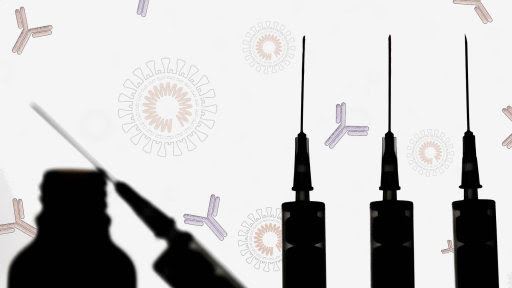









 www.sorryantivaxxer.com
www.sorryantivaxxer.com


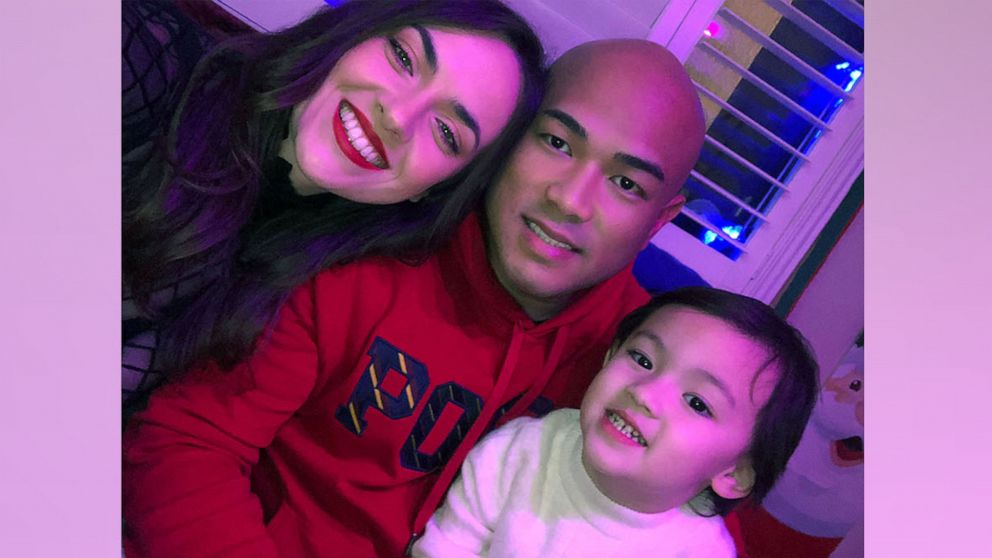
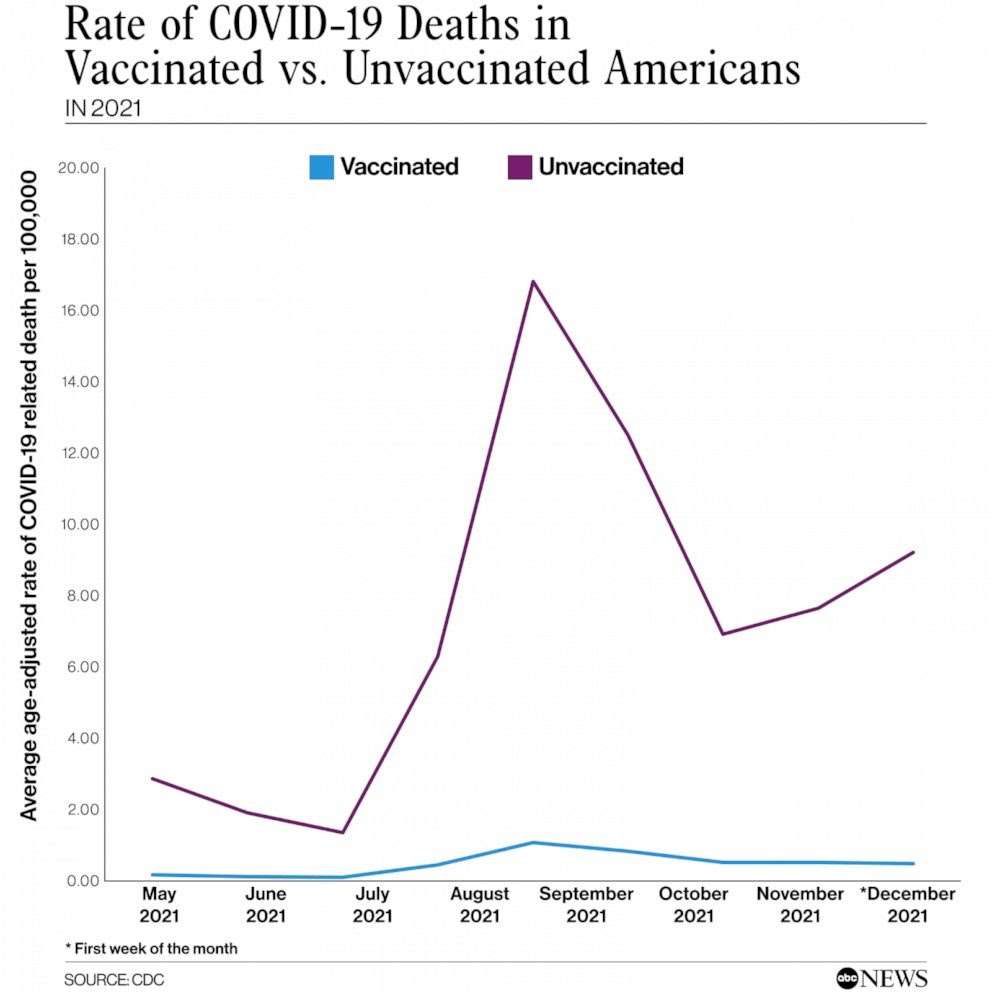
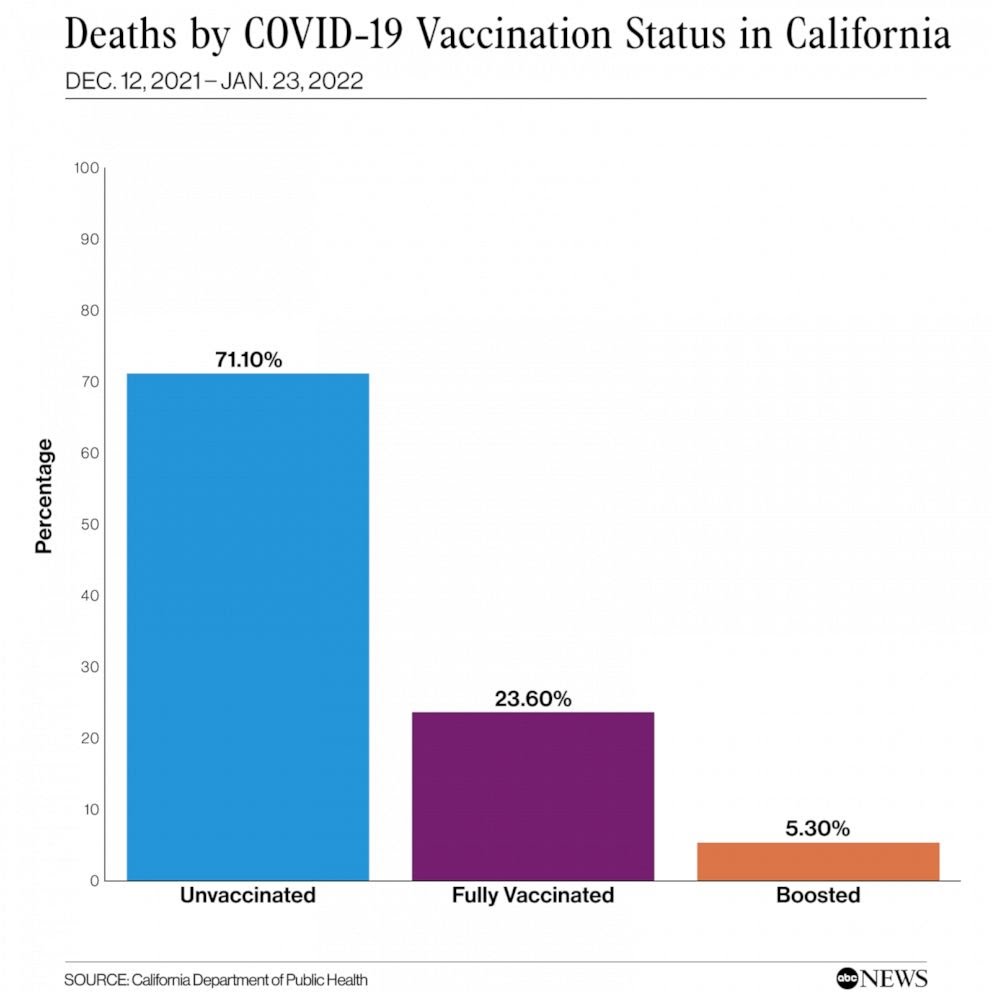
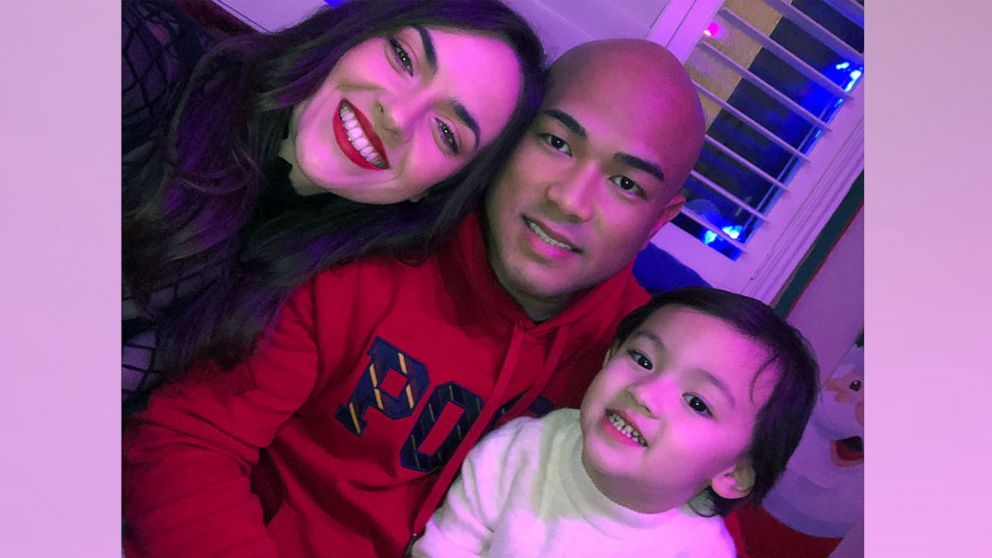









 www.sorryantivaxxer.com
www.sorryantivaxxer.com
